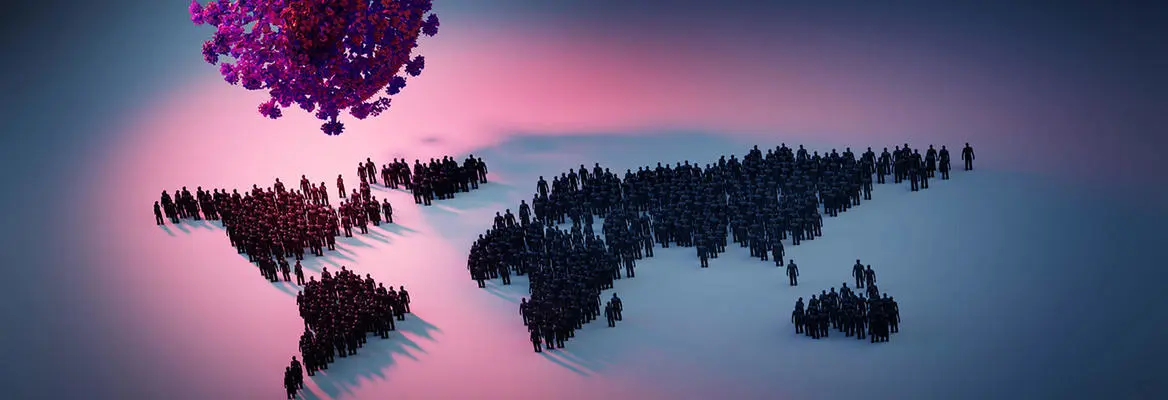This is the story of the birth, growth and marginalisation of a key discipline in the fight against the Covid-19 pandemic.
On 6th December 1917 a munitions ship exploded in Halifax sound, Nova Scotia. The blast devastated the surrounding area, killed 1,950 people and injured 9,000. This was the 'big bang' of disaster studies. A talented Anglican curate, Samuel Henry Prince, set about recording the social effects of the catastrophe and the progress of the relief effort. It was not quite his first disaster, as five years previously he had conducted funerals for some of the victims of the Titanic. At Columbia University, Prince wrote his PhD thesis on the Halifax disaster and in 1920 he published it as a book. This was the first modern, systematic, analytical account of the social effects of catastrophe. Other authors quickly followed Prince's lead. Thus we have 100 years of study in the field of disasters.
In 2003, concerted international action stopped the spread of an epidemic form of a sudden acute respiratory syndrome (SARS) virus which had badly affected East Asia and parts of Canada. This could have been a much more serious outbreak and it stimulated researchers to look into the possible consequences of bigger pandemic. At the same time, interest was growing in the task of reconstructing the history of the 1918-1920 influenza pandemic. Over the period 2003-2009 a number of authors contributed to the scenario. In 2005, urged to action by the SARS outbreak, the World Health Organisation produced a plan for coordinating national efforts to manage a pandemic. It was assumed that the culprit would be influenza of a kind that is more virulent and lethal than the seasonal strains which appear every winter. SARS viruses, including SARS-CoV-2, are not forms of influenza, but they have some similar effects, including potential mass release of cytokines, proteins that modulate the immune system's response to a virus. The so-called 'cytokine storm' can be lethal.
Generally, diseases are not part of the core material that disaster specialists study, but an exception is made for pandemics as so many of the effects are social, psychological and economic.
The scenario extended well beyond the medical side of the story to the social and economic effects. Generally, diseases are not part of the core material that disaster specialists study, but an exception is made for pandemics as so many of the effects are social, psychological and economic. Indeed, managing a pandemic involves balancing efforts to contain, deal with and recover from all of these things simultaneously. As the scenario was developed, individual countries followed the lead of WHO and produced their own national coordination plans and strategies. For example, the US pandemic influenza strategy was published in November 2005. A prototype UK plan was made in 2005, rewritten in 2011 and revised again in 2014.
I first learned the scenario from a presentation given in 2008 by Professor Ziad Abdeen of Al Quds University, Jerusalem, who started his talk with these prophetic words: "My task is to tell you things you don't want to know, and ask you to spend money you haven't got on something you don't think will happen." I have been teaching the scenario ever since. It also fed into the intense work that emergency planners carried out over the period 2008-2013 in preparing for the next pandemic. But by the middle of the last decade, their efforts in this field had been shouldered aside by a renewed emphasis on counter-terrorism.















Join the conversation